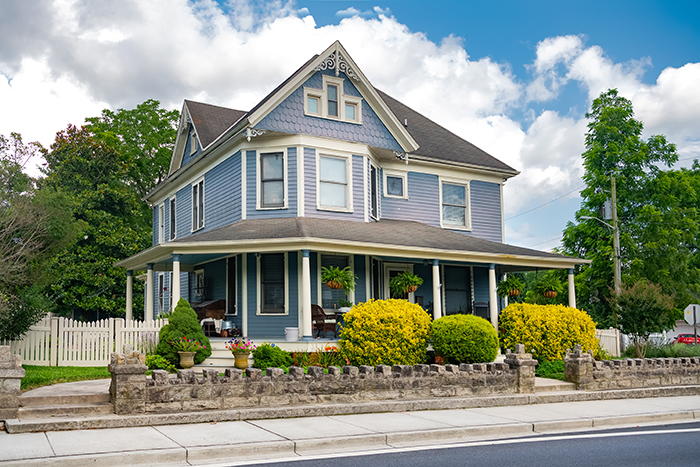Buying a house without a legal warranty: what you should know
When browsing the real estate market, you’ll often see listings marked “as-is.” In most cases, this means the home is being sold without a legal warranty. It may sound like a red flag for hidden defects, but that’s not always true. Buying a home without a legal warranty brings up a lot of questions: what it really means, what “at the buyer’s own risk” covers, and whether the seller could be on the hook for hidden issues.

Buying without a legal warranty can actually be a smart move, as long as you’re well informed and prepared to handle the risks. Read on to discover the pros and cons of this type of transaction, the precautions you should take, and what you can do if a hidden defect turns up.
What exactly is the legal warranty for a home?
A legal warranty protects the buyer of a property from latent (hidden) defects that “render it unfit for the use for which it was intended or which so diminish its usefulness that the buyer would not have bought it or paid so high a price if he had been aware of them.” This definition applies to all types of properties: single-family homes, condominiums, multiplexes, cottages, etc.
This automatic, minimum protection has two key components:
1. Warranty of quality
This warranty of quality protects the buyer by ensuring the property is free from hidden defects. Article 1726 of the Civil Code of Québec provides the legal basis for claims related to hidden defects. To make a claim, these conditions must be met:
- Not apparent: The defect cannot be discovered through a simple visual inspection during pre-purchase visits.
- Unknown to the buyer: The buyer was not informed of the defect before the purchase.
- Existed at the time of sale: The defect was present before the buyer took ownership.
- Significant impact: The defect either makes the property unfit for its intended use or greatly reduces its usefulness or value.
A breakdown or issue unrelated to normal use is not considered a hidden defect under the law. Also, a hidden defect is not the same as a property simply being old or not meeting certain standards. Even if the property appears to be in good condition, it can still have a hidden defect.
|
Tips and tricks Be careful! Make sure to read all the documents the seller provides and any paperwork exchanged before the sale, especially the Declarations by the seller and the pre-purchase inspection report. Keep in mind that the warranty of quality doesn’t cover defects the seller has already disclosed, or issues that a prudent and diligent buyer would have noticed. |
2. Warranty of ownership
The warranty of ownership (sometimes called the title warranty) is governed by Articles 1723 to 1725 of the Civil Code of Québec. It requires the seller to provide the buyer with a clear title. This protects the buyer against any other claims that could deprive them of or limit their ownership rights. (However, some limitations may exist, arising from either public law or private law.) A buyer can only invoke this warranty if the limitation exists at the time of the sale. However, if the limitation results from the seller’s wrongful behaviour (such as knowingly concealing that limitation), the warranty may still apply. If the seller disclosed the limitation to the buyer before the sale, it cannot later be challenged.
Excluding the legal warranty
By law, all properties automatically come with the warranty of quality and the warranty of ownership; no special clause is needed. To exclude one or both of these warranties, a specific clause must be added.
In such a case, the brokerage contract , detailed description sheet, and promise to purchase will include the following clause: “This sale is made without legal warranty of quality, at the buyer’s own risk.”
The seller may fully or partially exclude the legal warranty , as allowed under Article 1732 of the Civil Code of Québec. Most often, the exclusion applies only to the warranty of quality. This may cover specific elements of the property, such as a swimming pool, fireplace, heating or air-conditioning system, appliances, or aspects of the land.
|
Tips and tricks A professional seller (such as a builder, a new-home developer, or anyone who regularly earns income from selling properties) cannot exclude or limit the legal guarantees. However, a real estate broker is not considered a professional seller, since they act as an intermediary between the buyer and the seller. |
Why sell without a legal warranty?
Before signing a sale that includes a clause excluding the legal warranty of quality , it’s important to understand that this means the buyer gives up any right to take action against the seller if a hidden defect is discovered—even if the defect meets the legal requirements. In other words, the buyer becomes fully responsible for the property. That said, a seller can never escape responsibility for their own wrongful acts, even in a sale “at the buyer’s own risk.” This includes fraud or any attempts to mislead the buyer. Sellers are still bound by Articles 6 and 1375 of the Civil Code of Québec, as well as their duty to provide accurate information and be transparent.
Here are some of the common situations where a legal warranty exclusion is used:
- Estate sales or sales by seniors: Heirs may not know much about the property’s condition and want to protect themselves. Seniors may do the same to avoid future liability for their heirs.
- Sale of a foreclosed property : Financial institutions or liquidators often know little about the property and want to limit their responsibility.
- Homes in need of renovation or demolition: When a property is in poor condition or requires major renovations, an exclusion clause is often used to reflect the situation.
- Change of use: If the buyer plans to change the building’s use (for example, from residential to commercial), the seller may sell without a legal warranty, since they cannot guarantee compliance with future uses.
- Multi-unit properties: Sellers sometimes exclude the legal warranty for income properties due to the complexity of the building, to reduce their exposure to claims after the sale.
What are the risks and benefits of buying a house without a legal warranty?
Buying a house without a legal warranty is a valid option, but it comes with both drawbacks and advantages. It’s important to understand these before signing a promise to purchase.
Risks for buyers
- More surprises and potential repairs: If a major problem is discovered after the sale—like a cracked foundation or a roof that needs replacing—you’ll have to cover the costs yourself, and you’ll have no ability to cancel the sale or claim compensation.
- More difficult resale: Selling a property without a legal warranty can be more challenging. It may put off potential buyers and make the property less attractive.
- Few or no legal remedies: In general, it’s difficult to take action against the seller for a defect discovered after the sale, unless you can prove they knew about the issue and deliberately hid it.
Benefits for buyers
- Often lower prices: Properties sold as-is and without a legal warranty are often listed below market value, which make them an attractive deal.
- Less competition: Homes without a legal warranty tend to attract fewer buyers, which means you have more time to consider your options and negotiate a better offer.
The principle of the transmission of the legal warranty
According to the Organisme d’autoréglementation du courtage immobilier du Québec (OACIQ) , it’s possible to resell a home with a legal warranty, even if you originally purchased it without one. However, the warranty only covers your period of ownership and does not restore the protections of previous owners.
When a property is purchased without a legal warranty and “at the buyer’s own risk,” it breaks the chain of legal warranties from prior owners. This means that even if you resell with a legal warranty, it only covers your period of occupancy. At resale, the real estate broker will conduct a title search to see if the property was previously sold as-is and without a warranty. If so, they must inform their clients and explain the limits of the protection offered.
For example, we can look at the decisions in Ouellette v. Blais, 2021 QCCS 1084 and Blais v. Laforce, 2022 QCCA 858. These rulings confirm that: “when a sale includes a clear waiver of the warranty of quality, a subsequent buyer cannot invoke this warranty against a seller prior to the sale made without a warranty.” [translation] This is the exception to the principle of transmission of the legal warranty in property sales.
Precautions to take before buying a house without a legal warranty
To reduce the risks of this type of transaction, get a pre-purchase inspection , review the report carefully, estimate the cost of any necessary renovations , and create a realistic budget that fits your financial capacity. If any information in the Declarations by the seller is missing or seems questionable, ask for clarification and keep records.

The role of the real estate broker in a purchase without a legal warranty
Having a real estate broker can make a big difference when buying a home without a legal warranty.
In a real estate transaction, the broker has a duty to properly inform their client, especially if a clause excluding the legal warranty is involved. They must make sure the client clearly understands the consequences of excluding the legal warranty, since this knowledge is necessary to giving informed consent.
A real estate broker’s role goes well beyond acting as a go-between for the parties or forwarding documents to the notary. They’re expected to be diligent, checking key elements of the transaction such as the certificate of location, zoning bylaws, past property titles and any other information that could affect the property’s validity or value. They’re also responsible for pointing out possible options to their client based on what they find.
Québec’s Real Estate Brokerage Act protects both parties by requiring brokers to disclose all important factors, including the need for a thorough home inspection. A broker can also help you consider other options, like adding a partial warranty clause, or recommend a real estate lawyer if the circumstances call for it.
|
Tips and tricks A pre-purchase inspection is just that—a visual inspection. It doesn’t guarantee the absence of hidden defects, since those are, by definition, hidden. That said, the inspector may spot clues or warning signs that point to potential issues. As a buyer, it’s important to take these red flags seriously. Ignoring them could later be seen as careless or negligent if you try to pursue a claim for hidden defects. |
Possible remedies for the buyer in case of a hidden defect
When a property is sold without a warranty of quality, “at the buyer’s own risk,” the buyer generally has no legal recourse against the seller for a hidden defect —unless the seller acted in bad faith or engaged in fraud.
Here are the four conditions that must be met for a problem to qualify as a “hidden defect”:
- Serious: The defect makes the property unfit for its intended use or significantly reduces its usefulness. In other words, the buyer wouldn’t have purchased it or would have paid less, had they known.
- Hidden: The defect must not be detectable through a reasonable visual inspection by a prudent buyer or by a qualified building inspector during a pre-purchase inspection.
- Existed at the time of sale: To have recourse, the buyer must prove the defect was already present at the time of purchase.
- Unknown to the buyer: A defect isn’t considered “hidden” if the buyer was aware of it at the time of the sale, including any potentially dangerous issues.
|
Tips and tricks The legal warranty can’t be invoked for defects that are apparent, already known to the buyers, or listed in the Declarations of the seller. It also doesn’t apply to defects flagged by warning signs during the pre-purchase inspection. |
Selling without a legal guarantee: a growing trend
Sales without legal warranty have risen sharply in recent years. According to a 2021 report by JLR Land Title Solutions , the percentage went from 17% in 2014 to 26% in 2020, reaching 32% in the first five months of 2021.
This increase is partly due to the COVID-19 pandemic, which overheated the housing market. Some buyers have been agreeing to forego a legal warranty in order to secure a property and stand out in a competitive market.
|
Tips and tricks The OACIQ highlights the legal implications of this trend . For instance, a recent Quebec Court of Appeal ruling states that a buyer must prove the seller knew of the defect and deliberately chose not to disclose it. This underlines the importance of being well informed and cautious when buying a house without a legal warranty. |
Buying a home without a legal warranty: an opportunity for well-informed buyers
Purchasing a home without a legal warranty carries risks, but it can be appealing for buyers who are informed and well prepared.
Before making a decision, it’s crucial to understand the legal implications, assess the property’s condition, and work with professionals. Whether it’s a foreclosure sale or an estate sale, consider buying with a real estate broker .
Browse available properties on Centris.ca —including many foreclosures—and team up with a real estate broker who will guide you through every step of the transaction.
Frequently asked questions
1. How do I know if a property is sold without legal warranty?
A sale without a legal warranty must be clearly indicated in the property’s detailed sheet as well as in the Declarations of the seller. Look for a statement like “at the buyer’s own risk” (in French, it might be something like “sans garantie de qualité, aux risques et périls de l’acheteur”). If in doubt, ask your real estate agent.
2. What does “without any legal warranty, at the buyer’s own risk” mean?
This clause removes the warranty that the property is free of hidden defects (whether or not the seller knew about them) and also removes the warranty of title. It means the buyer cannot take legal action against the current seller or previous owners.
This exclusion doesn’t free the seller from disclosing defects they know about or from their duties to be transparent, informative, and act in good faith. If the buyer can show their consent was obtained through deception—for instance, if the seller deliberately hid key information or lied—they can still pursue legal remedies, even with the exclusion clause in place.
3. Do homes sold without a legal warranty cost less?
A 2021 report by JLR Land Title Solutions found that properties without a legal warranty typically go for 8% to 11% less than comparable homes sold with one. Since the buyer takes on more risk, the asking price can be lower than for a similar property with a warranty. This can be an appealing option for a well-informed buyer—as long as they are able to accurately assess the property’s condition and potential repair costs.
Article written in collaboration with:


| The information provided in this article is for informational purposes only and does not constitute financial, legal, professional or other advice or opinions. As such, we make no warranties, express or implied, as to the accuracy, reliability, integrity or exhaustiveness of this information, which you use at your own risk. In no event shall Centris be held liable for actions made on the basis of the information contained in this article or for any damage or loss, direct or indirect, that may result from, or in connection with, the use thereof. We recommended consulting with industry professionals for personalized advice before making any decisions. |
See also:
A comprehensive 12-step guide to buying a home
Everything you need to know about selling without a legal warranty
How to detect and avoid hidden defects in houses
 The Largest Number of Homes for Sale
The Largest Number of Homes for Sale



